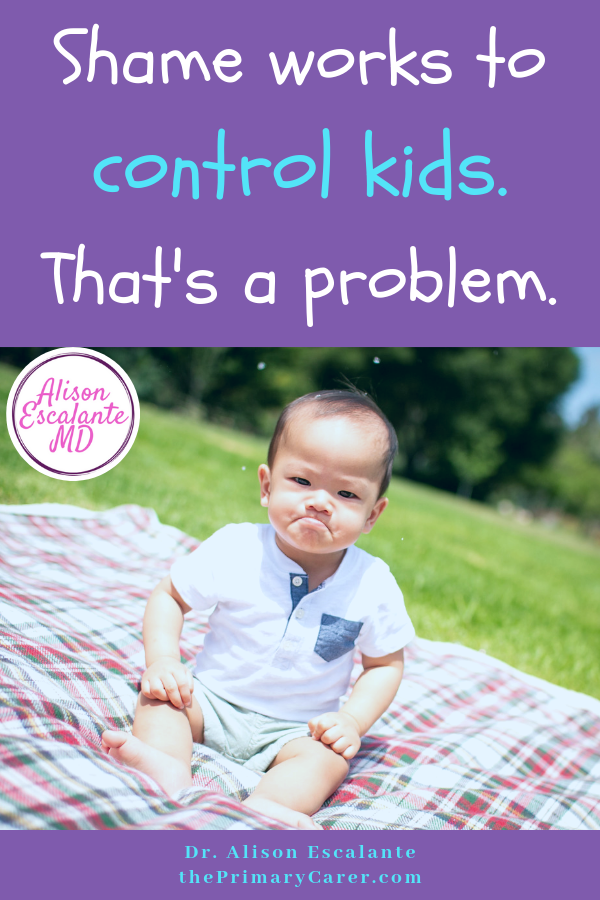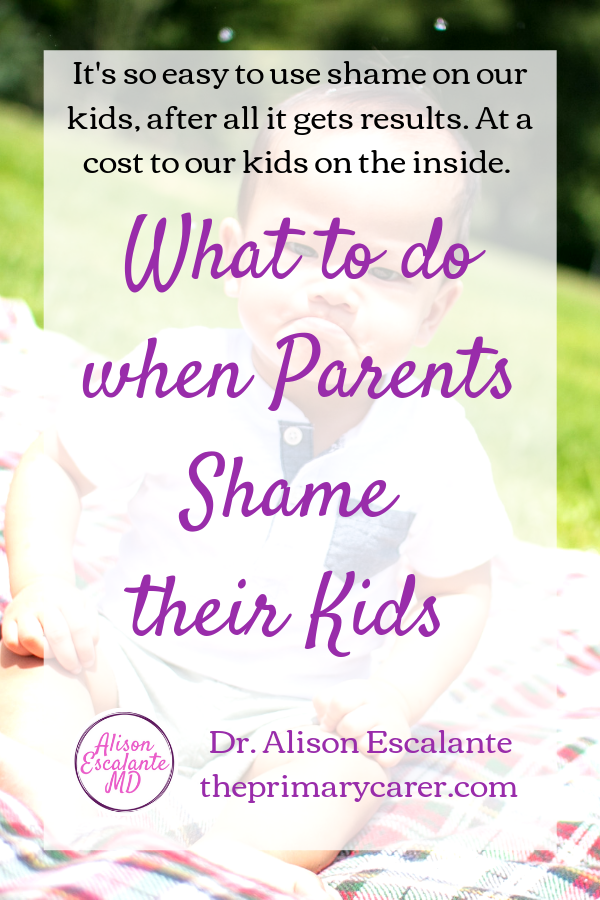Has someone criticized you or said something shaming to you lately? It feels like a slap in the face. You may feel it as the unpleasant tingle of a blush starting on your face, tightness in your throat and nausea in your belly. Or perhaps you defend yourself from shame by reacting with swift anger. So it won’t surprise you that your kids react to shame this way too.
Shame works and that’s why we use it. Often we don’t mean to, because we know that we don’t like the way shame feels to us. But we are just under so much pressure as parents and some of the the gentler parenting methods take so long to produce results. When we shame our kids, they usually do what we say faster. And is it really so bad? I mean we were raised that way and we turned out okay, right? And we only use it once in a while when we really need them to jump to it. “What’s wrong with you? Why can’t you be more like your sister?” They know we love them. An occasional, “What were you thinking?” Or “How could you do something so stupid?” won’t really hurt. Will it?

That’s what I talked about with Dr. Richard Schwartz of Harvard. He has some fascinating ideas about how people work, like the idea that we are more like a family on the inside than an individual. I looked at these ideas in my posts for Psychology Today, The Voices in Your Head and Do You Ever Wonder What’s Going on Inside Your Child’s Head?
When Parents Make Mistakes.
But things started to get very interesting when Dr. Schwartz and I talked more about what to do with our less than great behaviors. Because sometimes we mess up, and sometimes we do things that are not good for our kids without even realizing it.
When it comes to the mess ups, Schwartz believes they are trailheads, the signs at the beginning of a path that leads to a destination. That destination are places inside ourselves that need healing.
When we behave in a way we regret, most of us do what we were taught to do, try harder. The thing is, if trying harder really worked, we would not have messed up in the first place. Because the parents I know try hard all the time.
So if willpower doesn’t cut it, what does? That’s where following the path that our mistakes point to can lead us to the place that needs healing. Often we act the way we do because of a pattern set up in our childhood, often at a time we were hurt. You can learn more by reading “Your Triggers are Trailheads.” It turns out that we can often improve our behavior better by self-compassion and growth than by trying harder.
How did we learn to use willpower to manage our behavior?
Growing up, most parents today were raised either in an old school method that included tools like spankings, words of shame (“Why can’t you be more like your sister?”), and a general message that we had to buck up and work harder.

The slightly younger parents may have gotten a confusing mix of old school methods and parents as cheerleaders to improve their self-esteem (“You are the bestest kid ever and don’t let anybody tell you otherwise!”). But a focus on self-esteem may make it even harder to face our mistakes than the old school methods did, because it suggests that maybe we aren’t so awesome after all.
Either way, we were trained to use willpower, because that’s what our parents knew. People tend to raise their kids based on what they know, so it makes sense that we would be teaching our kids with willpower too. And that means using shame.
We use shame with our kids because it works. Sure, we try not to, we know it’s not the best. But here and there, under pressure, it pops out and it’s kind of a relief because we finally get compliance. Except that we’re causing a much bigger problem down the road. That’s what Dr. Schwartz and I discussed in “Shame Works to Control Kids…And That’s a Problem.” Take a look and learn the important ways we can be in charge without shame, and how to repair with our kids when we make a mistake.
If you want to know more about Should-Free parenting, explore this site for more blogs, or videos or join us on Facebook where we have a really fun group of parents. Really want to understand? Watch Dr. Alison’s TEDx talk.

©Alison Escalante MD
Disclaimer: This article represents general education and does not constitute medical advice. My ideas are mine alone.

